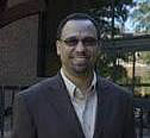Commentary on Ephesians 1:11-23
In the western portion of the northern hemisphere, the church has lost much of its clout.
Some of this loss is due to a less religious age, in which people’s needs (spiritual and otherwise) are met in other ways besides the local, ecclesial community. Declining attendance throughout the nation is one outcome of this situation. Equally significant is the presence and effect of scandals that plague the church community. From child abuse to support of unethical political leaders, the church has misplaced its loyalties unable to match its actions with its verbal commitment to follow the Jesus who resides on the side of the least of these.
There are many ways to respond to this new environment. Recognizing the diminishing influence is a first step. Some, sadly, go on the defensive. This general “letter”—if indeed “Ephesians” should be classified as such in light of its generic opening and unclear references to any specific crisis as is often the case in the indisputable Pauline letters—may emphasize the prominence of the church’s place more than any document in the early Christian writings. Writing in the name of Paul, the author wishes to remind his audience of their place in the world.
In many ways, this is the perfect passage for All Saints Day. It may be time to remember “the riches of his glorious inheritance among the saints” (Ephesians 1:18) and live in such a way that is worthy of that high calling. With Christ as the “head,” the church—“which is his body, the fullness of him who fills all in all” (1:23)—is called on to represent the Christ figure in the world. What should this representation look like?
The lectionary passage offers few details about what the church will do, even while encouraging it to remember its source. Christ is the head of the church and Christ’s authority resides in authoritative spaces far above earthly powers that we may see and recognize. And, from this position the church must find its stability, so that Christ’s “wisdom and revelation” (Ephesians 1:17) might flow through it.
In the ancient world, the language of empire was common fare for many thinkers and writers. This is no less true for the Ephesian writer. Christ’s appointment to be “seated at [God’s] right hand in the heavenly places” would recall for the audience an environment in which eastern potentates reigned—following their deaths—through their heirs. Most importantly, people expected their kings to ensure justice in the land for all of its subject citizens. During the first century, Ephesus and its citizens would have been under Roman rule for some time. So, their knowledge of eastern kingship practices would have been less by experience—unless some of them had moved from the East—and more by tradition. In any case, the Ephesian theologian acknowledges that death was unable to hinder God’s will, as God raised Christ “from the dead and seated him” in his ruling position above all authorities.
So what difference does Christ’s position make for the church? The use of the term “church” (ekklesia) is highly cosmic, as the church connects to its “head” (as both source and guide), who, in turn, sits in power and authority over all. The meek and lonely church (in which there are occasional “divisions” among believers, as in 1 Corinthians 11:18) is far removed from the Ephesian portrayal in this document. God’s wisdom is expressed through this church (Ephesians 3:10). God is glorified through this church and through its head, Christ (3:21). Appropriating a marriage analogy, the writer emphasizes Christ’s love for the church, sacrificing for it (5:25) and caring for it (5:29), while calling simply for the church’s submission. The hierarchal language (rightfully) disturbs many contemporaries with our democratically leaning practices. How a church “submits” to its Lord is less troubling—than the gender abuse often associated with the marriage analogy of this passage—partly because the “submission” to Christ is open to interpretive options.
With Christ as “head”—who sits at the right hand of God—followers of Jesus should reflect on their own position in the world. How can the church reside in a pluralistic society and honor Christ’s headship? The challenge, here, is humility, of course, but a person who rests comfortably in authority should be able to aim for fairness because they should have no “beef to pick” (so to speak). The church must find its place in a contemporary world in which pluralism is (or, honestly, should be) the way of the land, at least, within the experiment we call a democracy. (Whether that is always the case is another issue altogether.)
The author, however, goes one step further as he envisions a struggle for the church against more than earthly powers, since that struggle occurs “against the spiritual forces of evil in the heavenly places” (Ephesians 6:12). And, indeed, it is a struggle that stretches Jesus’s followers to think beyond their local (or, often, individualistic) struggles in order to participate in larger challenges that the “forces of evil” bring. After hearing this message of “evil” represented in this “spiritual” manner, the tendency may be to go inward and only wrestle against such forces with traditional spiritual practices and not utilize resources (which may appear mundane)—such as the political wherewithal—to challenge the earthly ramifications of such perceived evil. Such quietism often enraptures the church, during distinct moments in history, as they turn inward. This can often present itself as advocacy for peace for the sake of peace without the evidence of clear justice for those most vulnerable to the “spiritual forces of evil” in the earthly realm.
One of the grand challenges of the contemporary church is not to regret its loss of status in the history of the Western world and attempt to reclaim it. Rather, this is an opportunity to return to (first-century) roots, when the Christian ecclesia held no influence. In fact, letters such as this one were sent to these small, surviving believing communities primarily to reassure fellow believers so that they would persevere in their faith. Even this letter written to a second (or, third) generation community—notice the language of Ephesians 1:12-13—was intended to inspire believers to remain faithful as people of the “pledge.”
Inheritance laws can get particularly complicated in the U.S. when there are larger estates bequeathed and family challenges to the (supposed) will. In any case, the author of Ephesians is also concerned about inheritance (Ephesians 1:14). Despite the language of those who were “first” (as a kind of distinction in this inheritance) and, apparently, those who came to faith later, all believers receive the “pledge” of the Spirit, a present sign of the future goal. One sign of this early church’s commitment was its love for “all the saints,” a practice for which they were remembered and a worthy legacy to pass on to future generations.


November 3, 2019